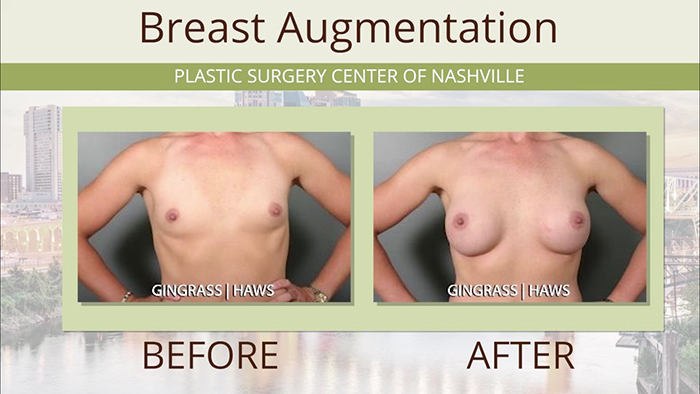Do breast implants cause certain autoimmune, neurological or other various types of diseases? It’s been a widely discussed and intensely studied topic for the past thirty years.
During this special edition of PSC Deep Dive, board certified plastic surgeons specializing in breast surgery share their views on available implant safety studies and discuss how they help patients navigate health concerns in relation to breast implants.
Breast Implants: Well Studied Medical Devices
In 1992, silicone implants were removed from the market – not because of any direct evidence that they caused disease, but because of a lack of answers to questions about the long-term safety of silicone implants. The news created a frenzy, and many women became frightened that their implants were making them sick.
Board certified plastic surgeon Dr. Patricia McGuire of St. Louis was one of only a few female plastic surgeons at the time, and had only been in practice for one year. When the question of silicone implant safety became front-page news and silicone implants were pulled from the market, she was immediately inundated with women who were concerned about their health and safety.

“A lot of women had unnecessary surgery to remove their implants that they thought were poisoning them,” shares McGuire. “Then the scientific data came out, as well as the Institute of Medicine Compendium, and showed there was no link they could prove between silicone implants and any diseases. We want to make sure that the science going forward doesn’t lead to women, like they did in the 90s, having unnecessary surgery or being unnecessarily frightened.”
Unlike the 90s, plastic surgeons today have decades of research available demonstrating the safety of silicone implants. “This is one of the most studied medical devices on the market,” points out board certified plastic surgeon Dr. Mary Gingrass. “Breast implants have absolutely been through the ringer.”
When Patients with Implants are Sick
Solving the cause of an illness can be a very complicated process. Symptoms like hair loss, lack of energy, rashes, joint pain and many other ailments can be difficult to pin on any one underlying cause. In the case of women with implants, sometimes this question arises: Are the implants causing these symptoms?
“I do have patients come to me sometimes and say, ‘I got breast implants and I’m so tired now, and my hair is falling out,’” shares Dr. Melinda Haws, a board certified plastic surgeon in Nashville. “Most of those patients have not been to see their primary care physician. I got my breast implants in 1998. I’m much more tired now than I was then, but it’s been 20 years. There’s a lot of different things that can make us feel badly. Thyroid disease will make your hair fall out. Thyroid disease makes you tired!”

When a patient comes to her with undiagnosed symptoms, Haws first recommends her patients see their primary care doctor to rule out other other potential causes, such as thyroid disease or menopause. She also assures them that if they do decide to remove the implants, she is happy to do so for them. She can’t, however, guarantee that taking the implants out will help them feel any better or will resolve any symptoms.
Removal is an Option
Dr. McGuire regularly sees patients in her practice who are concerned that their implants may be making them sick. These are patients who have been to see their doctor, their rheumatologist, yet nothing comes back to show the cause of their symptoms, which range from rashes and headaches to fatigue and hair loss.
“They are at the end of their rope,” says McGuire. “The only thing they can think of left is their implants. They have something in their body that doesn’t belong there and they want it out.”
In these cases, she explains to the patient that there isn’t scientific data to back the idea that the implants are causing illness, but that she believes it is possible there are some patients whose bodies don’t like having foreign material in them, whether that is a hip replacement or a breast implant.
“We also know about biofilms,” adds McGuire. “I’ve had a few patients that I’ve removed their implants and have cultured the pocket, which looked normal, and it did grow some bacteria. So it’s possible that some of these women have a subclinical infection as a potential cause for their issues.”
Understanding Breast Implant Removal Options
Once a patient has decided to remove her implants, it’s important for the surgeon and patient to come up with a plan for surgery. “I have more and more people coming in thinking it’s just a simple, ‘remove the implants and fill the breast back up with fat,’ and it’s not that simple,” says Gingrass. “I really encourage people to get good information before they proceed.”
How the breast will look after breast implant removal will depend on many factors, such as the size of the implants that are in there and the amount of natural breast tissue and skin that are present. Some people will need to have a breast lift, while others may decide to have the implant removed, and wait to see how the breast looks in a few months before deciding whether to proceed with a lift.

“I can show them a lot of pictures and give them a really good idea of what my educated opinion is about what their particular breasts will look like and whether they might want to do a lift right away,” says Gingrass. “I have people sometimes come back and say, ‘I miss my implants, I don’t feel any different, and you know, I’d maybe like a smaller implant and a lift.’ We’re here to try to find what’s best for patients, and their needs absolutely change over time.”

















Facebook
Twitter
Instagram
YouTube
RSS